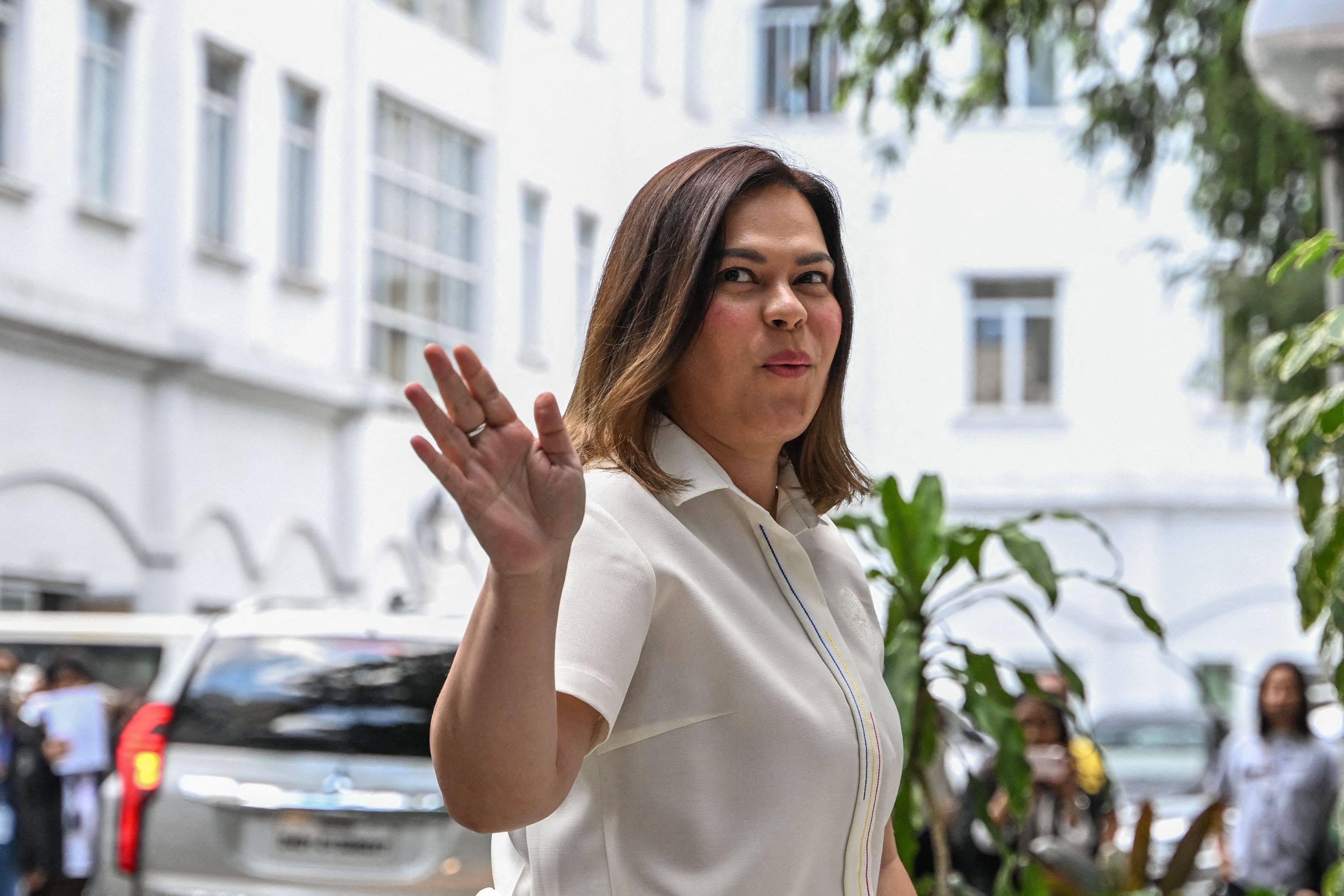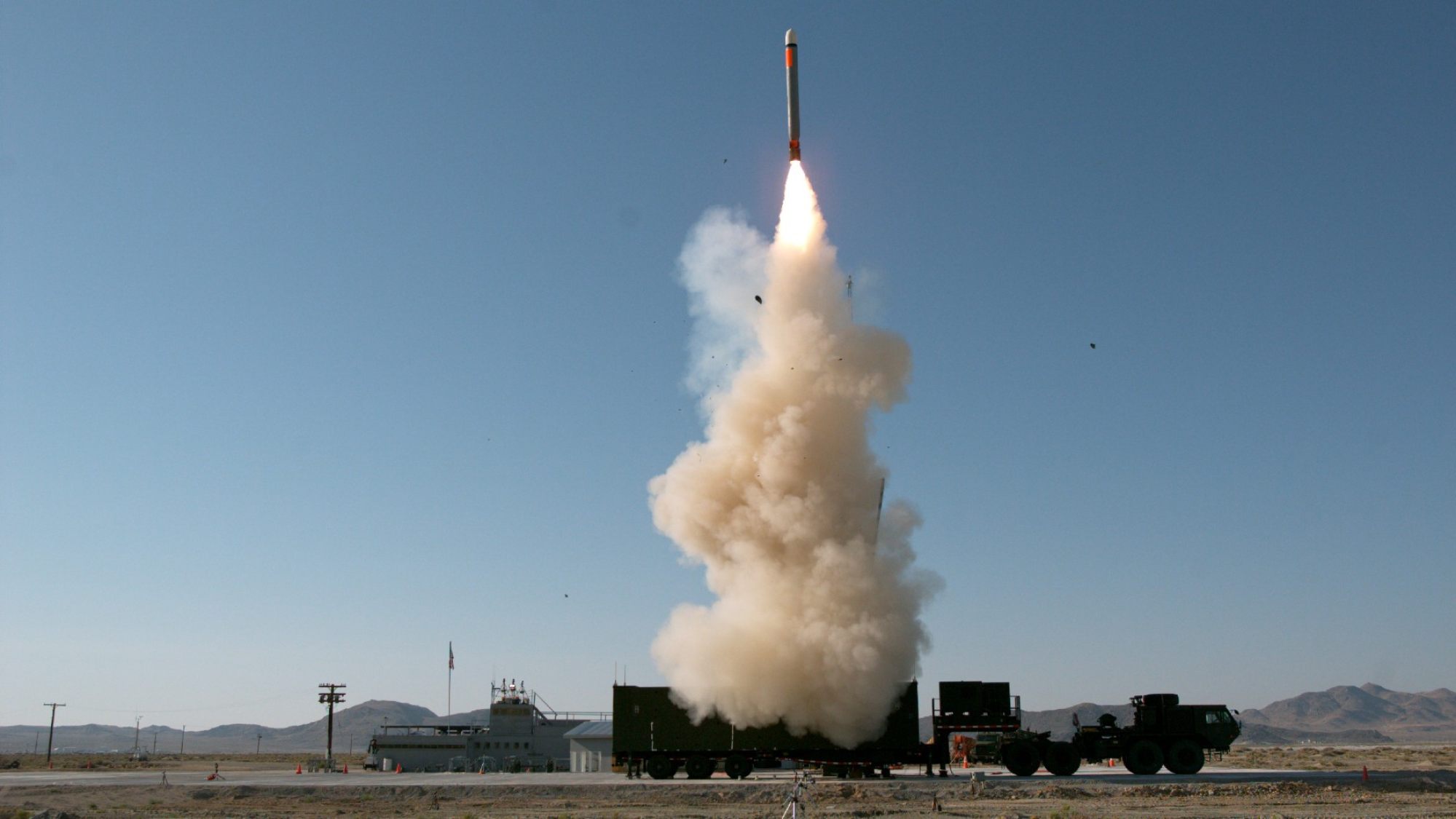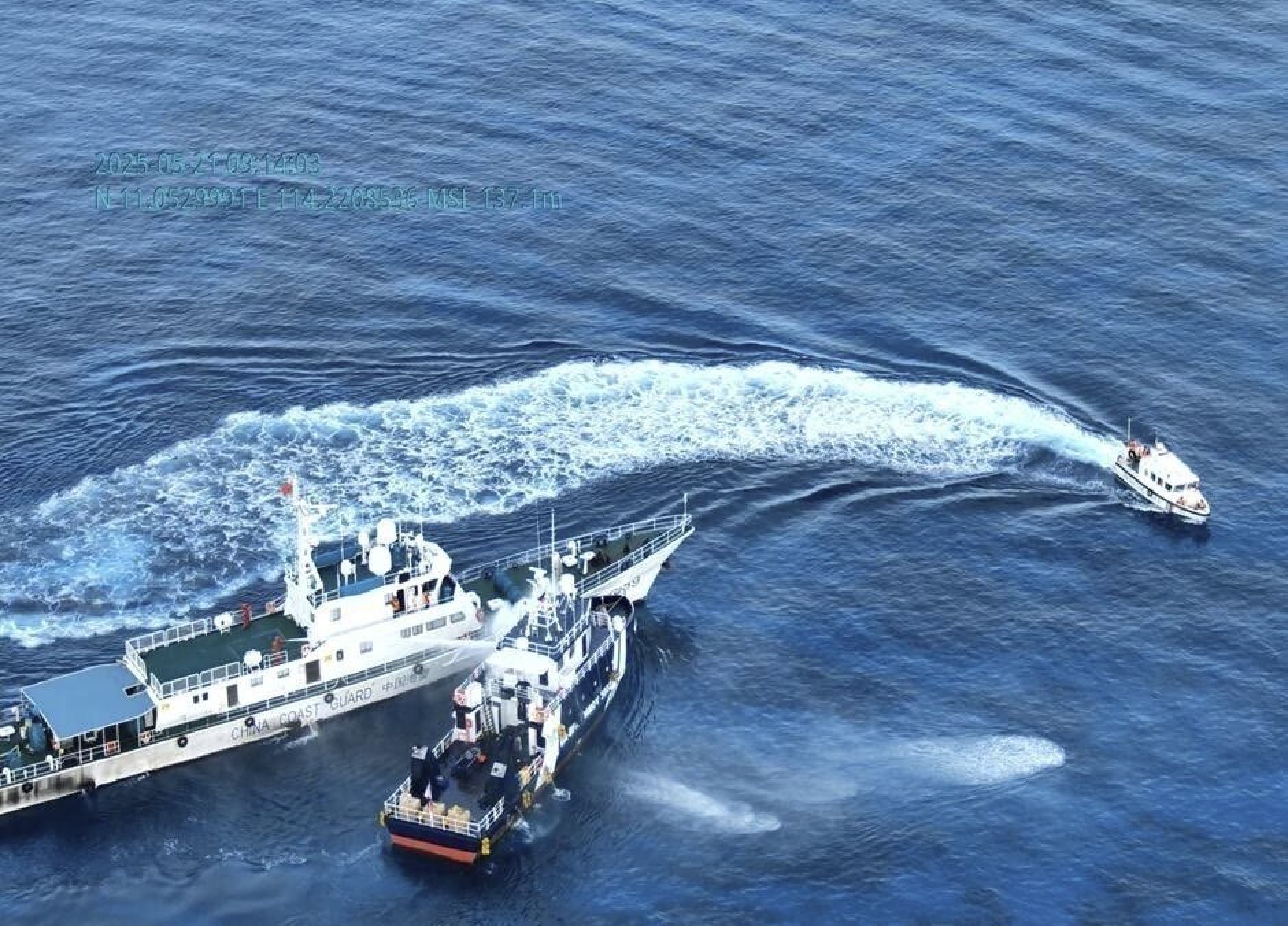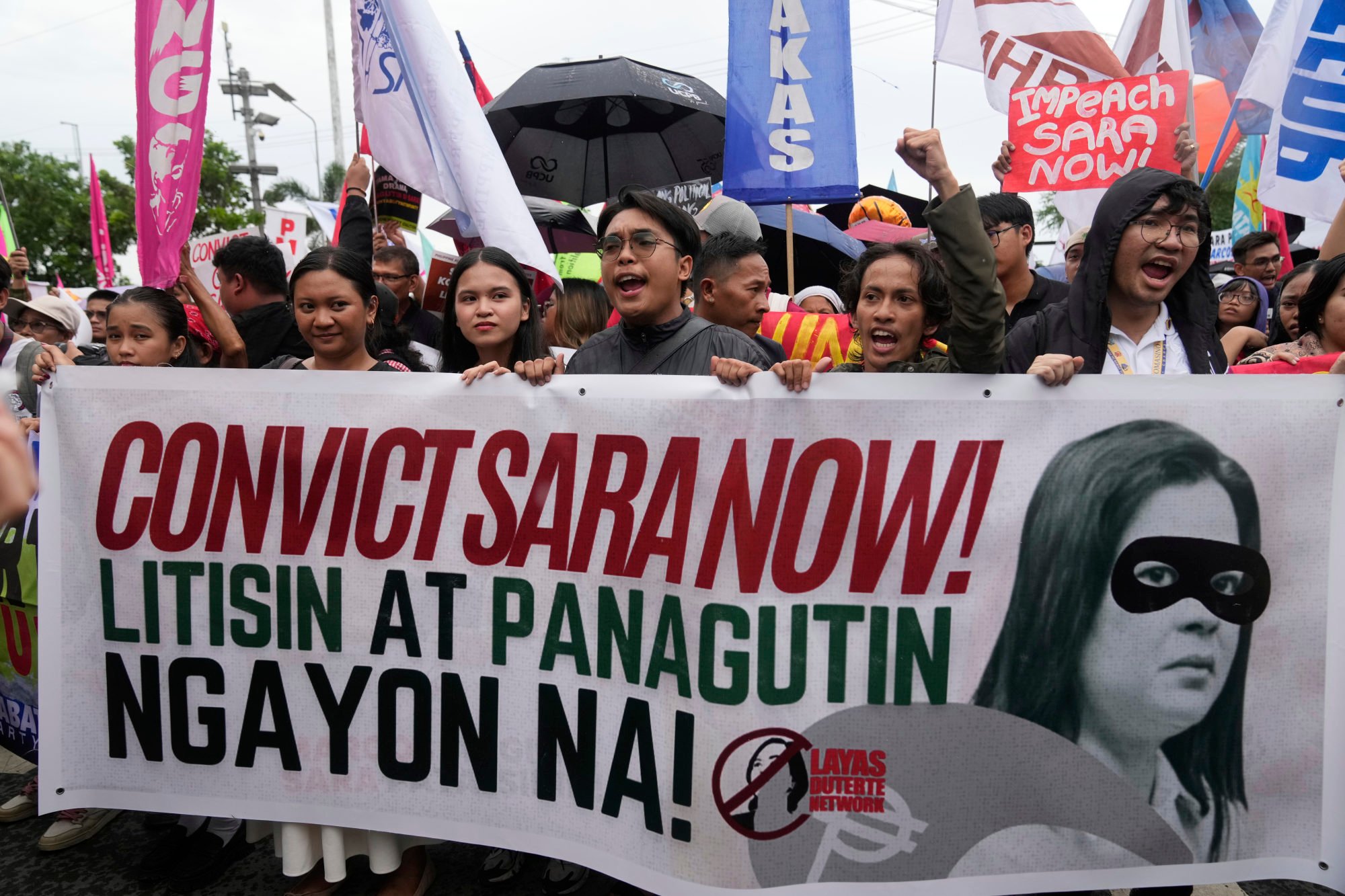Sara Duterte warns against Marcos’ US pivot, ‘leaning’ on a foreign power
Her comments hint at her stance that Manila should pursue an ‘independent foreign policy’ instead of leaning towards the US or China

The Philippines’ Vice-President Sara Duterte-Carpio has called on the country to steer away from its “unbalanced” foreign policy in an implicit criticism of President Ferdinand Marcos Jnr, as she offered her clearest indication yet of where she stands on China.
In a speech delivered to a group of Filipinos at the Parliament Gardens in Melbourne on Sunday, Duterte-Carpio warned against leaning on “a foreign power” and allowing its weapons systems to be deployed in the Philippines, calling such moves contrary to the constitutional requirement of an independent foreign policy.
Although she did not specifically name it, her speech made a clear reference to the US military’s Medium Range Capability (MRC) missile system – also known as Typhon – which has been stationed in northern Luzon since last year. There have also been discussions regarding Manila hosting more of the launchers.
The ground-based launcher can fire Tomahawk and SM-6 missiles with ranges of up to 2,000km, which puts parts of the South China Sea, the Taiwan Strait and even southern China within striking range.
Beijing has called the Typhon’s deployment provocative and dangerous on multiple occasions, saying it could fuel an arms race and destabilise Southeast Asia. In May, Chinese defence ministry spokesman Wu Qian called it “a strategic offensive weapon” that “brings huge risks of war into the region”.

During her speech, Duterte-Carpio said: “It is stated in our constitution that we should have an independent foreign policy that does not lean towards a foreign power, that does not favour the US or does not favour China.”
The vice-president, who resigned as education secretary and left Marcos Jnr’s cabinet in June last year, has since emerged as one of his most prominent critics, underscoring the collapse of their once-powerful “Uniteam” alliance, which won the 2022 election.
Her remarks on Sunday were seen as a significant departure from Marcos Jnr’s assertive stance against Beijing on the South China Sea dispute and a nod to the more conciliatory approach taken by her father, former president Rodrigo Duterte, who pivoted Manila away from the US during his six-year term in favour of closer ties with China.
The timing and substance of her comments are likely to fuel speculation over her political ambitions, as Duterte-Carpio is viewed as a leading contender for the presidency in 2028. Until now, she had remained conspicuously silent on Beijing’s role in the South China Sea conflict.
The vice-president noted that the Philippines had already won its arbitration case invalidating China’s nine-dash line and its claims to maritime features in the West Philippine Sea – the part of the South China Sea that Manila considers its territory.
“We already won. The entire world knows the arbitral award said that belongs to the Philippines. And therefore, the only thing that you need to do is force the recognition and the implementation of the award through diplomatic channels,” Duterte-Carpio said in a mix of Filipino and English.

Without naming Typhon, Duterte-Carpio questioned the strategic purpose of the missile system for the Philippines, given it was not involved in the larger US-China rivalry. “For what will you use the missile [system]? Who will be launching a war against the Philippines?” she asked.
She said the Philippines should not “cling” to a foreign power. “You will allow that foreign power to place a missile [system] in your country that you know will be resented by that power’s enemy. That is not independent foreign policy,” she added.
On the other aspects of the Philippines’ foreign policy, Duterte-Carpio praised its strong ties with Australia and called for deepening bilateral relations with other countries.
Her remarks drew comparisons with her father’s diplomatic stance, which stressed being “friends with everyone”. But the senior Duterte’s doctrine came under scrutiny from critics, who argued that it resulted in the Philippines making concessions to China without gaining meaningful benefits in return.
One of those critics was Commodore Jay Tarriela, the Philippine coastguard’s spokesman on West Philippine Sea matters, who questioned the consistency of Duterte-Carpio’s message and challenged the legacy of her father’s administration.
“Reflecting on the previous administration – which professed a foreign policy of being ‘friend to all, enemy to none’ – it is noteworthy that the former president visited China five times but never once travelled to the United States during his six-year term,” Tarriela wrote in a lengthy post on social media late on Sunday.
“He openly expressed admiration for China and President Xi Jinping,” Tarriela continued. “Yet, despite this seemingly cordial relationship, Filipino fishermen continued to face harassment, our marine resources were subjected to exploitative practices, and our public vessels were harassed and intimidated.”
The commodore asked whether these maritime encounters proved China’s unreliability as a partner, noting that Philippine Defence Secretary Gilberto Teodoro had cited a “significant trust deficit” with Beijing.
“Advocating for closer ties with China at the expense of our alliance with the United States – our oldest treaty ally – suggests either a lack of strategic insight into our national security imperatives or a predisposition towards Beijing. Furthermore, who is actually asserting that we intend to use missiles for offensive purposes?”
As indicated by Marcos Jnr, Philippine strategic decisions “stem from our own strategic interests, not from pressure or influence exerted by other states”, Tarriela said.
Duterte-Carpio’s comments come amid deeper scrutiny of her role in national defence. Critics have questioned whether she should continue to hold the rank of colonel in the Philippine army reserve force while offering views on security policy that diverge from the commander-in-chief.
A senior Philippine military official, speaking on condition of anonymity, told This Week in Asia that only the president could remove any individual from the roster of reservist officers.
“As long as a reservist is not convicted in any criminal case, he or she cannot be delisted,” the officer said.

Duterte-Carpio is also the subject of an ongoing impeachment process – the first against a Philippine vice-president – after the lower house approved charges in February over her alleged misuse of confidential funds and threats against officials.
She has denied wrongdoing, with allies framing the case as an attempt to weaken her standing ahead of the 2028 presidential race.